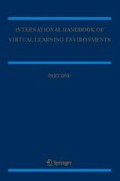Technology has become the new star ship in the policy fleet for governments around the world. While often conceptually inchoate and ill-defined, technology studies figures as a new subject in national curricula, often as part of the new core. Also technology as a subject is promoted in higher education, including teacher education programmes, as part of a thrust to develop links with industry and business in a series of new venture partnerships. The emphasis on technology in education also accords with initiatives to promote greater entrepreneurial skills and activity within so-called national systems of innovation. What is more, technology planning often is now part of national knowledge foresight programmes and science policy, designed to promote sunrise industries and knowledge and technology transfer. In short, technology is seen to be a key driver towards the knowledge economy.
My purpose is not to explain the recent increase in the public profile of technology in economic and education policy, but rather to begin to develop a mapping of the field of philosophy of technology and its significance for education.3 At a general level, this is important because philosophy of technology addresses general questions concerning the nature of technology, its impact on society and, for the purposes of this paper, specifically on education. Philosophy of technology, therefore, promises the possibility of an understanding of technology that may be important not only to public policy but also in helping to conceptualize intellectual approaches to the study of technology and, indeed, to shaping new fields of knowledge and research. These approaches to the study of technology, clearly, have a significant role to play in curricularizing technology at all levels. Philosophy of technology may also have a role to play in relation not only to structuring a largely disparate and inchoate field but also more directly in teaching and learning about technology. These are only promissory notes to be redeemed, if at all, at the end of the paper after our investigation.
Access this chapter
Tax calculation will be finalised at checkout
Purchases are for personal use only
Preview
Unable to display preview. Download preview PDF.
Author information
Authors and Affiliations
Editor information
Editors and Affiliations
Rights and permissions
Copyright information
© 2006 Springer
About this chapter
Cite this chapter
Peters, M.A. (2006). Towards Philosophy of Technology in Education: Mapping the Field. In: Weiss, J., Nolan, J., Hunsinger, J., Trifonas, P. (eds) The International Handbook of Virtual Learning Environments. Springer, Dordrecht. https://doi.org/10.1007/978-1-4020-3803-7_3
Download citation
DOI: https://doi.org/10.1007/978-1-4020-3803-7_3
Publisher Name: Springer, Dordrecht
Print ISBN: 978-1-4020-3802-0
Online ISBN: 978-1-4020-3803-7
eBook Packages: Humanities, Social Sciences and LawEducation (R0)

